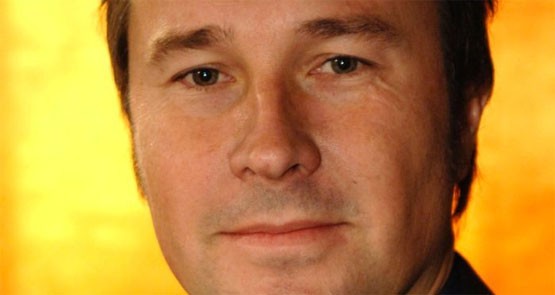
After 10 years in China, nine of them as China correspondent, Stephen McDonell has filed his last story for the ABC.
He’s spending Christmas in Australia then heading back to Beijing to join the BBC on January 18, leaving Aunty after a long career that included stints on Four Corners, 7.30 and Lateline. But after so long in Beijing, he told Crikey yesterday, he just couldn’t bring himself to leave.
“They wanted to bring me back,” he says. “Most ABC correspondents get posted for around three or four years. I had three postings in a row.”
“I can’t complain. I had a good run with the ABC. But when the time came, I thought, I’ve become a China guy now. The place fascinates me. The BBC offered me a job, and I’ve taken it.”
Over his decade reporting on China, McDonell has seen the country change at breakneck speed. In a special hour-long episode of Foreign Correspondent to air on Tuesday, he revisits the people and places that featured in some of his most memorable stories for the ABC, from covering earthquakes to environmental pollution to the shifting economy.
His host country was not always thrilled with his reporting, with McDonell sometimes tailed or otherwise discouraged from pursuing stories Chinese authorities would rather keep hidden. Last year, ABC corporate affairs director Michael Millet had a 40-minute meeting with China’s Australian ambassador, who urged the ABC to pull a story McDonell had done on the China’s ethnic minority Uighur people in the autonomous region of Xinjiang (the ABC ended up airing the story regardless).
For several years, the Foreign Correspondents’ Club of China has been surveying its members on conditions for foreign correspondents in China. Every year, most say the situation gets worse. The most recent report found four in five journalists surveyed said the situation had stayed the same or deteriorated over the past year, and many cited difficulties obtaining passes and permits, as well as some more serious instances of intimidation. For example, in May, an Al Jazeera correspondent had film footage deleted by police armed with rifles and shotguns after filming violent protests in Sichuan province.
McDonell says the best time for foreign reporters in China came in the lead-up to the 2008 Olympics. “China wanted to impress the world,” he said. One of the ways they did this was by abolishing a law that said foreign reporters needed the permission of local provincial governments to go anywhere to film. “In the run-up to the Olympics, they ditched that rule, and it never came back. That was a great change for us.”
But since then, he says, in many ways the situation for foreign journalists has deteriorated. “When certain outlets do stories the government doesn’t like, they get punished in certain ways. For example, visas for new correspondents wouldn’t be issued, or would take a long time to be issued.” The worst example of this of course was The New York Times, which has been unable to bring new correspondents into the country for over a year.
Talking to some people and getting to certain places remains difficult. Getting into Tibet is impossible. When McDonell spent some time in Xinjaing in north-western China last year, he and his team were tailed by dozens of officials the whole time they were there.
Luckily McDonell has rarely had to face this alone. The ABC’s China team is still substantial. While all news outlets have pulled back on foreign bureaux in recent years, the ABC has turned Beijing into one of its regional hubs. This means that while reporters in other parts of the world increasingly operate as VJs — “video journalists” who both report and film, often on their own or with only a local fixer — the ABC’s Beijing bureau still is home to two correspondents, one or two camera operators, and several local producers.
“As a result of budget cuts other bureaus have been drastically cut back,” McDonell said. “I think it’s really terrible. Tokyo, Bangkok and New Delhi have been gutted. And at this time in our development, you’d want pretty solid coverage of Asia, and instead its been cut right back. One VJ, no studios, no local staff, no local expertise.”
Nonetheless, McDonell’s pretty bullish on China coverage. For Australia outlets, he expects, Beijing will be the last bureau to survive.
“China’s such a vast and interesting place, that doesn’t know how not to make news. It might be difficult, but it’s never boring. And its importance will not decrease in coming years.”
And there’s considerable appetite for China stories, he adds, though all current correspondents are constrained by time and resources. “We could file twice as many China stories and the ABC would run them,” he said. “I know my colleagues from the Financial Review, The Sydney Morning Herald and The Age have huge demand. There’s never any problem selling their stories.
“Other places may be wound back. But I think China correspondents will be the last ones standing.”








Interesting that Beijing is now a ‘hub’ – how the spiders’ webs have been rewoven since Vasco de Gama.